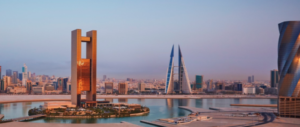Bahrain’s spending cuts ‘may be over’ as oil prices stabilise
Senior official says excessive administrative spending should be reduced instead.

Bahrain’s government is no longer obliged to cut public spending as international oil prices start to stabilise, said committee chairman for financial and economic affairs Abdulrahman Bu-Ali ahead of the 2017/2018 national budget meeting.
He said the government should instead balance finances which go towards development projects and schemes.
“The problem is obvious – excessive administrative spending – which the government has tackled but needs further time to address properly. We have to know how the government gets its numbers and the rationale behind allocating amounts to ministries and government bodies,” Bu-Ali said.
He added MPs have set continued financial aid to the public as a condition for the budget to be passed.
“People’s standard of living can’t be affected and with the cost of services and commodities going up, allowances and financial aid are helping many Bahraini families make ends meet,” he said.
Bahrain’s government announced a draft of cost-cutting measures in 2015 due to the drop in oil prices which increased public debt and inflated the national deficit.
The government will meet with the parliament’s financial and economic affairs committee on Monday to reach an understanding on the draft budget to be submitted on December 31 by the Cabinet.
“The draft budget when presented to us by the Cabinet can’t be redrafted from scratch, if we are not convinced, because it is built in a way that major changes may cause problems. This is the first time we are trying this system because neither of the sides wants the budget to be delayed,” said Bu-Ali.





